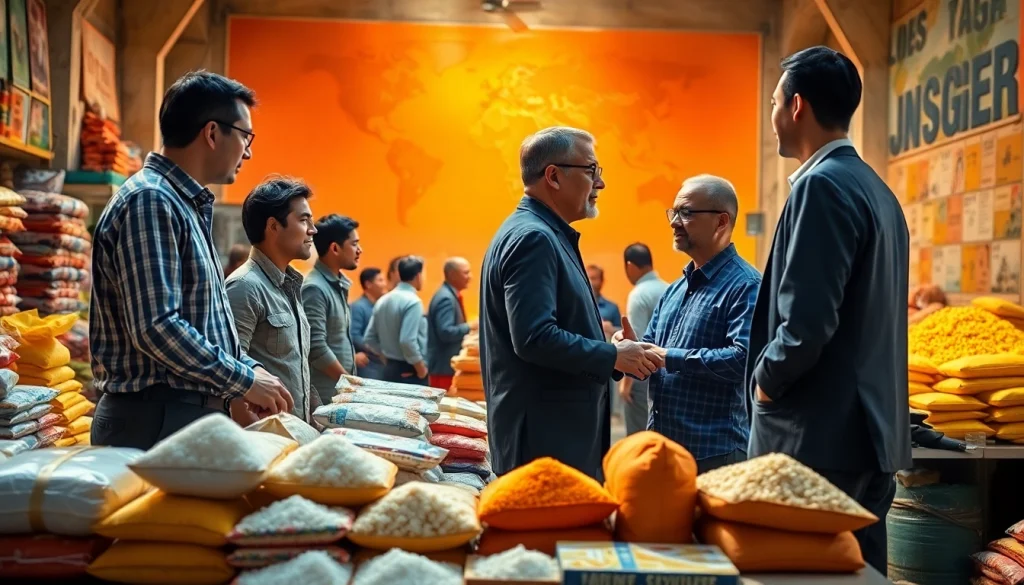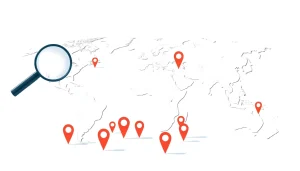Connecting with Sugar Buyers: A Comprehensive Guide for Suppliers

Understanding the Market for Sugar Buyers
The landscape of the sugar market is complex and multifaceted, characterized by diverse players and a wide array of products. At the heart of this ecosystem are the sugar buyers, whose role is paramount to the supply chain. Understanding their needs, preferences, and the macro-economic environment is critical for suppliers looking to engage meaningfully with this sector.
The Role of Sugar Buyers in the Supply Chain
Sugar buyers are pivotal intermediaries in the sugar supply chain. They procure sugar from producers, often negotiating contracts and prices that influence market trends significantly. Their purchasing decisions are driven by numerous factors, including quality assessments, price forecasts, and logistical considerations. Furthermore, buyers often establish relationships with sugar producers to secure stable supply lines and favorable pricing structures.
Their role can be subdivided into several key functions:
- Market Analysis: Buyers constantly analyze market trends, including pricing fluctuations and supply-demand dynamics, to make informed procurement decisions.
- Quality Assurance: They ensure that the sugar meets specific quality standards, which is vital for maintaining brand reputation and customer satisfaction.
- Contract Negotiation: Sugar buyers negotiate with suppliers to secure the best possible prices while ensuring the reliability of supply.
- Risk Management: Buyers also engage in risk management practices, which involve hedging against price volatility and ensuring compliance with various regulations.
Market Trends Impacting Sugar Buying
A multitude of trends currently reshapes how sugar buyers approach their business:
- Health Consciousness: An increasing number of consumers are becoming health-conscious, leading to a decline in sugar consumption. This trend influences buyers to look for sugar alternatives and lower-calorie sweeteners.
- Sustainability Initiatives: There is a growing emphasis on sustainability within the supply chain. Buyers are increasingly scrutinizing the environmental impacts of sugar production, leading to a rising demand for sustainably sourced sugar.
- Technological Advancements: Technology is revolutionizing the sugar market. Buyers are now leveraging data analytics and supply chain management tools to enhance procurement processes and optimize inventory levels.
Identifying Key Players Among Sugar Buyers
The sugar market comprises various actors, from multinational corporations to local producers. Key players include:
- Cargill Inc.: As one of the largest agricultural companies globally, Cargill is a major sugar buyer, dealing in raw and refined sugar.
- Domino Foods Inc.: This U.S.-based company is significant in the sugar market, focusing on both retail and industrial sugar sales.
- United Sugars Corporation: A joint venture among major sugar refineries, United Sugars plays a crucial role in supplying bulk sugar to numerous clients across the U.S.
How to Attract Sugar Buyers to Your Offerings
Attracting sugar buyers requires a strategic approach that emphasizes your unique selling propositions and the competitive advantages of your offerings. Here are some essential strategies:
Strategies for Effective Marketing to Sugar Buyers
Marketing to sugar buyers necessitates an understanding of their preferences and decision-making processes. Here are effective strategies to implement:
- Segment Your Audience: Understand the different segments of sugar buyers based on their needs, such as industrial versus retail buyers, and tailor your messaging accordingly.
- Highlight Unique Selling Points: Emphasize what sets your product apart, whether it’s superior quality, pricing, or sustainability practices.
- Networking Events: Attend trade shows and industry conferences to connect with potential buyers and showcase your product directly.
Building a Compelling Value Proposition
A well-defined value proposition can significantly influence a sugar buyer’s decision. This involves conveying the unique benefits that your product offers compared to competitors. Focus on aspects such as:
- Quality and purity of the sugar.
- Responsibility in sourcing, thereby highlighting ethical and sustainable practices.
- Customer service level, including reliable logistics and support.
Utilizing Digital Platforms for Engagement
The digital landscape provides abundant opportunities for suppliers to engage with sugar buyers:
- Social Media Marketing: Use platforms like LinkedIn to build connections and share insights and innovations in sugar production.
- Website Optimization: Ensure your website is SEO-optimized to appear in searches conducted by buyers looking for sugar suppliers.
- Email Marketing: Utilize targeted email campaigns to inform potential buyers of new products, industry trends, and market insights.
Developing Relationships with Sugar Buyers
Building strong relationships with sugar buyers goes beyond a one-time sale. Constructive relationships can foster loyalty and repeat business. Here are some strategies for relationship management:
Networking Strategies in the Sugar Industry
Participating in industry networks can significantly enhance your connection with buyers:
- Join Lead Generation Platforms: Platforms like TradeWheel and go4WorldBusiness facilitate networking with sugar buyers.
- Industry Associations: Aligning with associations related to the sugar industry can open doors to potential buyers and collaborative opportunities.
- Value Workshops: Host informational seminars on trends in sugar production or sustainability to engage buyers actively.
Best Practices for Maintaining Long-Term Connections
Nurturing relationships require ongoing effort. Implement these techniques to ensure lasting partnerships:
- Frequent Communication: Regularly update buyers about product availability, market trends, and any changes in your business.
- Feedback Mechanism: Implement systems to gather feedback from buyers and utilize insights for improvements.
- Customer Loyalty Programs: Establishing loyalty programs can incentivize repeat purchases and enhance buyer satisfaction.
Importance of Transparency in Transactions
Transparency engenders trust in business relationships, particularly in transactions involving sugar buyers. Adopting practices that promote transparency can lead to long-term partnerships:
- Open Communication: Maintain clear channels of communication throughout the negotiation and sales processes.
- Full Disclosure of Costs: Provide clarity on pricing, including possible fluctuations in the market.
- Ethical Sourcing: Disclose your sourcing practices to reassure buyers that your products meet their ethical and quality standards.
Navigating Challenges Faced by Sugar Buyers
The journey of sugar buyers is fraught with challenges that require strategic approaches to navigate effectively. Understanding these challenges can help suppliers tailor their offerings and support solutions:
Understanding Logistical Hurdles in Sugar Buying
Logistics is a critical aspect of the sugar supply chain that affects pricing and availability. Key logistical challenges include:
- Transportation Costs: Fluctuating fuel prices can significantly impact shipping costs, and buyers must account for these variances.
- Supply Chain Disruptions: Events such as natural disasters can disrupt supply chains, affecting delivery schedules.
- Storage Requirements: Procuring adequate storage facilities is crucial for buyers to maintain product quality and mitigate losses.
Dealing with Price Fluctuations and Market Dynamics
Price volatility is commonplace in the sugar market, influenced by several factors, such as:
- Global Market Changes: Economic conditions, currency fluctuations, and geopolitical developments can impact pricing.
- Consumer Preferences: Shifts in consumer behavior toward low-sugar alternatives can affect demand and pricing structures.
- Weather Conditions: Adverse weather can impact sugar crop yields, directly influencing supply and market prices.
Compliance and Regulatory Considerations for Sugar Buyers
Compliance with regulations is vital for sugar buyers, especially when operating across borders. Navigating these regulations can be complex, involving:
- Import Tariffs and Duties: Buyers must stay informed about tariffs that can impact cost structures.
- Food Safety Regulations: Adhering to local and international food safety laws is necessary for compliance and maintaining market access.
- Documentation Requirements: Buyers need to manage extensive documentation to ensure compliance with customs and trade regulations.
Future Outlook for Sugar Buyers: What to Expect
Looking ahead, the landscape for sugar buyers may transform significantly due to evolving market dynamics. Here are projected trends:
Projected Trends in the Global Sugar Market
The future of the sugar market is likely to be shaped by several trends:
- Increased Demand for Alternatives: The growth in demand for alternative sweeteners is likely to rise, impacting traditional sugar sales.
- Shifting Global Trade Policies: Changing trade agreements may influence sugar prices and availability in various regions.
- Consumer Awareness: Increased scrutiny on the nutritional content of products may lead buyers to seek healthier options in their procurement strategies.
Technological Advancements Impacting Sugar Buying
Technological innovations are set to streamline processes and enhance supply chain efficiencies:
- Advanced Analytics: Data analytics can help buyers forecast trends and optimize inventory.
- Blockchain for Transparency: The use of blockchain technology can provide enhanced traceability and transparency in the supply chain.
- Automation in Logistics: Automated systems for shipment tracking and inventory management can improve operational efficiencies.
How Sustainability Practices are Reshaping Buyer Preferences
Lastly, sustainability is increasingly influencing buyer preferences as environmental concerns rise:
- Sustainable Sourcing: Buyers are prioritizing suppliers who demonstrate sustainable practices in their production.
- Climate Change Considerations: Adaptation strategies in sourcing to account for climate change impact will become essential.
- Consumer Demand for Ethical Products: Buyers who align with ethical practices will likely see improved market access and brand loyalty among consumers.






